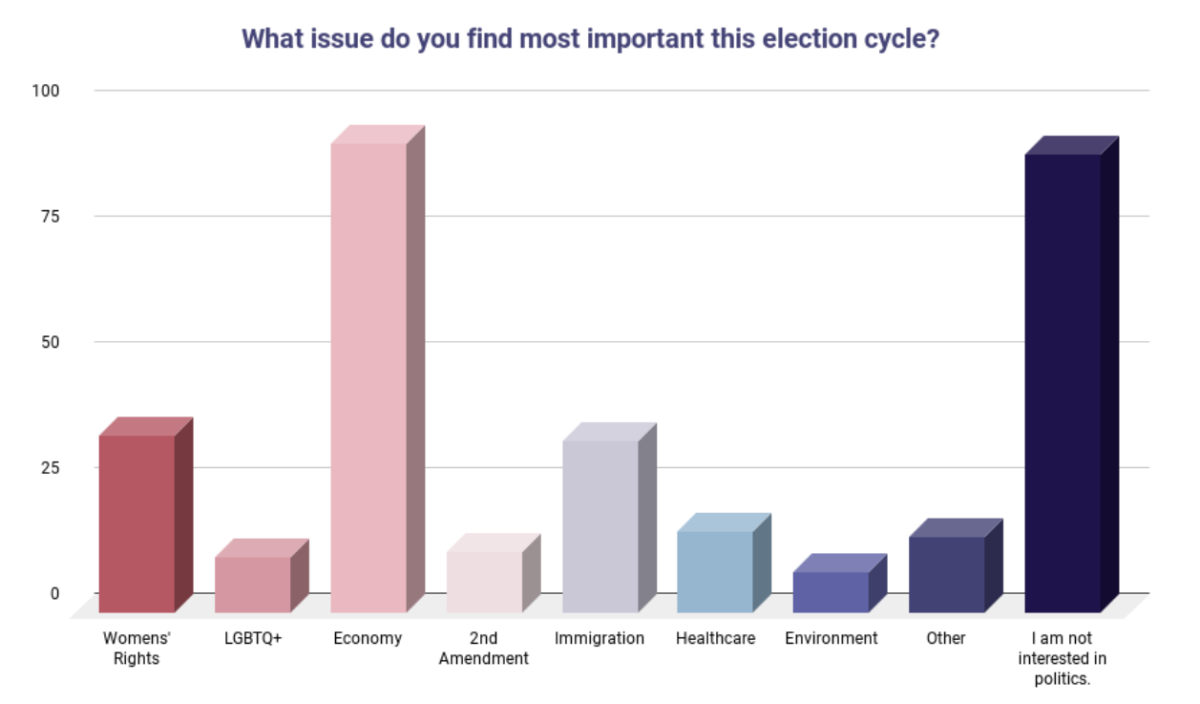The creaky door closes, and the phone next to her shines bright; the time and date reads “December 8, 1:34 PM”. Her clammy hands brush over her eyes. She sits herself up, placing her feet on the icy floor. She takes a deep breath in, and out, as the loss of her appetite washes over her. The bone-chilling cold pierces throughout her body. The changing of seasons leave her unmotivated and dark circles appear under her eyes.
***
Seasonal depression is a mental health condition that profoundly affects individuals during certain times of the year. While most people associate it with winter months due to reduced sunlight and shorter days, seasonal depression can also occur in the summer.
Lela*, a student here at Marcus, experiences seasonal depression every year, with symptoms lasting as long as seven months. Her symptoms typically peak during the winter, when days are darker and colder, but she also feels its grip in the summer. Lela first noticed the shifts in her demeanor a few years ago, recognizing patterns that signaled her seasonal depression.
“I’d start noticing changes when I sleep in late or don’t get any sleep,” Lela said. “I stay in bed longer, lose my appetite, feel a shift in my mood, and have little to no motivation.”
Her cycle of seasonal depression has affected all aspects of her life, including her education, relationships, and mental health. Before transitioning to online school, Lela struggled with attendance, homework, and her daily routine. However, switching to online school has significantly improved her ability to manage her depressive symptoms.
“It’s affected me positively,” she said. “Since I can do things at my own pace, it has been super easy to balance my mental health and school work.”
The weight of Lela’s emotions also affected others around her.
“My relationships with friends and family became distant,” Lela said. ”I wouldn’t talk to people for days because I just didn’t have the motivation to keep relationships.”
Seasonal depression doesn’t just affect the individual, it also can impact the entire family dynamic. Her mom, Maia*, who has experienced depression herself, understands the difficulty of managing mental health.
“I felt like our relationship wasn’t the same as before since we were both struggling with our own things,” Maia said. “It made me feel uneasy and terrible.”
Her family observes her struggles firsthand, noticing the ways her demeanor changes during this season.
“She stayed in her room more, ate very little, stopped talking to people, and just shut herself off,” Maia said. “There would be days where she would try to have some energy, but she usually stayed in a really gloomy mood.”
Her sister, McKenzie*, recalls noticing her skipping school and watching her grades drop. The family felt the weight of her depression, often unsure how to help her.
“It made me feel bad for her,” McKenzie said. “I didn’t like seeing her go through that.”
For Maia, therapy, medication, and religion have been vital in managing her own mental health. These strategies not only help her cope but also provide her with the strength to support her daughter.
“We took her to counselors, tried medication, and gave her lots of love,” Maia said. “All these things improved her depression a lot.”
Journaling, working out, and spending time with ferrets have become essential tools for Lela. Her ferrets play a crucial role in her daily routine.
“They’re the reason I get up in the morning,” she said. “I know a lot of people hear journaling is a good coping mechanism and get tired of hearing it. I used to get annoyed when my therapists suggested it, but when I tried it, it genuinely felt like there was a weight off my shoulders.”
Writing allows her to express her thoughts and emotions in a way that feels safe and nonjudgmental.
“I don’t do well with talking about my problems with a human person,” she said. “Writing out my thoughts, feelings, and frustrations without someone saying anything back was therapeutic for me.”
Lela’s journey highlights the importance of understanding and addressing seasonal depression as a legitimate mental health condition. While progress has been made, misinformation about depression still continues, often preventing individuals from seeking help.
Lela’s efforts emphasize the importance of finding personalized coping strategies, whether through professional treatment, lifestyle changes, or the support of loved ones. Lela reiterates that recovery is not linear; it requires patience, resilience, and a willingness to embrace incremental change.
She wants others who struggle with seasonal depression to know that they are not alone in their struggles.
“It’s okay to ask for help,” Lela said. “Even small steps can make a big difference.”
As she continues to navigate the ups and downs of seasonal depression, she remains focused on maintaining a healthy balance between her mental health and daily responsibilities. Her family’s support with her own strength has given her hope for the future.
Lela’s experience highlights the importance of recognizing the diverse impact of seasonal depression, not just during the colder months, but whenever it appears, and finding personal strategies that bring joy and balance. As awareness grows, so does the hope that those affected by seasonal depression can access the tools and support they need to navigate their challenges.
*real names withheld at interviewees’ requests







